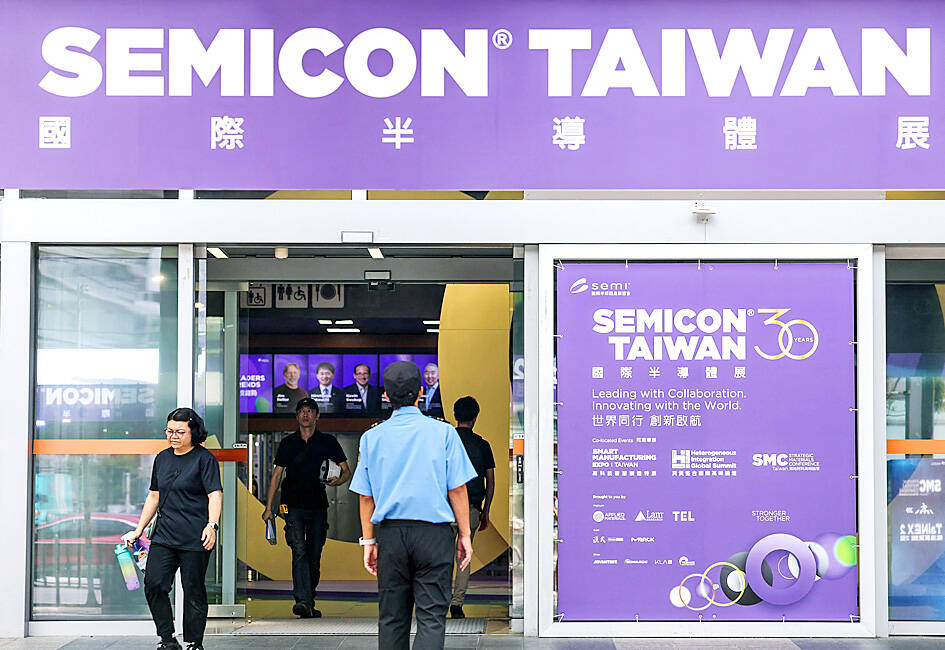Japanese geoeconomist Satoshi Inomata yesterday called for semiconductor collaboration between Taiwan and Japan, saying the two sides working together could “exert geo-economic powers” better safeguarding their economic security.
“Taiwan and Japan … can be an extremely strong pair to exert geo-economic powers over the region using semiconductor supply chains,” Inomata, a senior researcher at the Institute of Developing Economies in Japan, said at a forum on the sidelines of the Semicon Taiwan trade show in Taipei.
Borrowing from military terminology, Inomata said economic partnerships among like-minded countries, such as “friend-shoring” — a trade practice where supply chain networks are focused on countries regarded as political and economic allies — could serve as a form of “deterrence by denial.”

Photo: I-Hwa Cheng, AFP
According to Inomata, such partnerships should help prevent shortages in individual countries through measures such as sharing information on supply capacities and even critical supplies.
He added that these measures would reduce the impact of economic coercion from opponents, including export restrictions, thereby discouraging them from taking hostile actions.
His comments came as panelists at the forum noted that the semiconductor sector has become increasingly intertwined with national security strategies.
Semiconductor policy will increasingly be shaped by global security policies and the broader international security landscape, as the two become ever more closely linked, said Peter Fatelnig, a digital economy policy official from the European Union delegation to Japan.
Philip Wong (黃漢森), a professor of engineering at Stanford University, said that as semiconductors become a battleground between nations, collaboration among private companies remains critical and is increasingly dependent on “trust.”
This was partly due to shifting dynamics between fabless chip firms and foundries, he said, noting that the design and manufacturing sides were increasingly collaborating on chip co-optimization and co-design.
“A high degree of trust is required” when companies involved have to share their industrial roadmaps, such as technology and production plans, added Wong, who also serves as chief scientist at Taiwan Semiconductor Manufacturing Co (台積電), an advisory role at the world’s largest contract chipmaker.

AloJapan.com